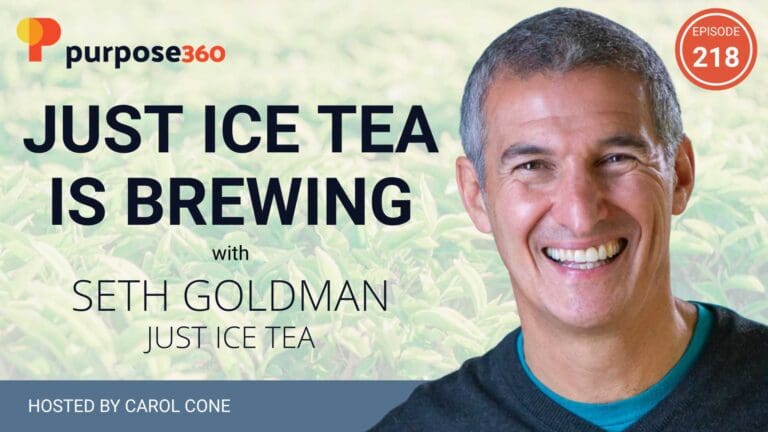Gardening is not about immediate success or instant gratification. The same can be said about social purpose.
As a company for gardeners, ScottsMiracle-Gro has a succinct purpose: “helping people express themselves on their own piece of the Earth.” Cultivating a thriving garden takes care, commitment, and flexibility to adapt as conditions change. With that, creativity – and expression – can blossom.
By taking this approach to cultivating social purpose, Scotts has developed a thoughtful, adaptive, and long-term platform for business and social impact. And that’s no miracle.
Jim King, SVP of Corporate Affairs and Chief Communications Officer, joined us to share how Scotts honed its green thumb for purpose.
Scotts is the largest marketer of lawn and gardening consumables in the world. The business is healthy, the brand is a household name, and the products enable people to beautify their environments and put food on their tables. Yet, Scotts wanted to do more and be more. Nearly a decade ago, Scotts CEO Jim Hagedorn asked, “What are we here to do?” The answer was not just to help people buy fertilizer.
With a mandate from the CEO, Scotts embarked on its social purpose journey. Part of that was probing the company’s existing or potential weak spots – such as the environmental impact of products. One pain point stemmed from the company’s science-based focus. With the largest team of agronomists in the world and field stations across the U.S. and Europe, Scotts had “a tendency to fall back on the science…and defend the science at all costs because it’s fact based.”
The average consumer doesn’t want to hear about science, especially in regard to potential negative impacts on the environment. Consumers want to connect with brands that are empathetic and have a sense of humanity. In this episode, King talks about the legislative and environmental hurdles that helped Scotts take a more human – and transparent – approach to its business and purpose.
Since that mindshift, Scotts has sponsored a $10M science challenge, the George Barley Water Prize; built 1,000+ community gardens; created the Water Positive Landscapes initiative; built thriving long-term NGO partnerships; and more.
Here are our favorite insights from King:
- Highlight social challenges – even if you’ve played a role in them. Scotts removed phosphorus from its products in 2011 to address the harmful effects of phosphorus runoff and resulting algal blooms, which harm the environment. Even though the impact of Scotts’ fertilizers was minimal, the company wanted to help solve the issue. And not only did Scotts change its products, but it sponsored a $10M prize aimed at addressing the problem.
- Environmental initiatives don’t need to be siloed. Most large companies have some flavor of environmental initiative, whether it involves supply chain, manufacturing processes, offsetting negative impacts, or other. These efforts tend to be siloed and not tied to a larger purpose or touchpoint – and that’s okay for most companies. But as a company founded to directly (and positively) impact the environment, Scotts integrated its entire environmental approach, from product development to community projects.
- Consider the relationship between your product and the customer, and how it ties to purpose. True to Scotts’ purpose of helping people express themselves on their piece of the Earth, King understands that the company’s customers are not buying the product because they love fertilizer. They’re buying fertilizer because they love what they can do and produce with it. A ripe tomato, a vibrant garden, a brilliant green lawn – that’s why customers choose Scotts. Understanding this nuance can guide companies on their journey to an authentic and transparent social purpose.
RESOURCES:











